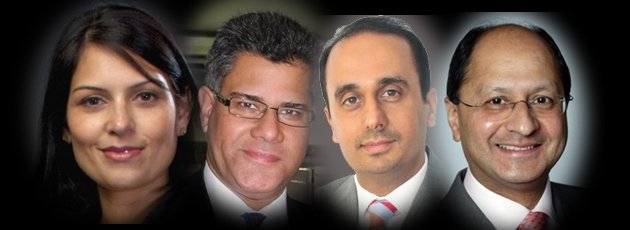- Home
- News & Blogs
- About Us
- What We Do
- Our Communities
- Info Centre
- Press
- Contact
- Archive 2019
- 2015 Elections: 11 new BME MP’s make history
- 70th Anniversary of the Partition of India
- Black Church Manifesto Questionnaire
- Brett Bailey: Exhibit B
- Briefing Paper: Ethnic Minorities in Politics and Public Life
- Civil Rights Leader Ratna Lachman dies
- ELLE Magazine: Young, Gifted, and Black
- External Jobs
- FeaturedVideo
- FeaturedVideo
- FeaturedVideo
- Gary Younge Book Sale
- George Osborne's budget increases racial disadvantage
- Goldsmiths Students' Union External Trustee
- International Commissioners condemn the appalling murder of Tyre Nichols
- Iqbal Wahhab OBE empowers Togo prisoners
- Job Vacancy: Head of Campaigns and Communications
- Media and Public Relations Officer for Jean Lambert MEP (full-time)
- Number 10 statement - race disparity unit
- Pathway to Success 2022
- Please donate £10 or more
- Rashan Charles had no Illegal Drugs
- Serena Williams: Black women should demand equal pay
- Thank you for your donation
- The Colour of Power 2021
- The Power of Poetry
- The UK election voter registration countdown begins now
- Volunteering roles at Community Alliance Lewisham (CAL)
PM in India: The value of Indian UK MPs
Ten UK parliamentarians from Indian heritage have underpinned the Prime Minister’s largest overseas business delegation in recent years. David Cameron has taken six Peers and four MPs, and 100 top British companies to India as part of a three day visit to enhance trade links.
Making a speech in Mumbai on the first day of his historic trade visit, the PM said that India would soon be the 3rd largest economy in the world, and he hoped that the UK would be its preferred business partner.
Given the economic power India is and how much greater it will be in the future, Cameron sought to position the UK as a natural business ally. Of course, there is the historical colonial tie, but that part of our combined historical past does not speak to a more equitable understanding which benefits both nations.
Cameron’s trump card was to take along the parliamentarians from both Houses –six from the upper chamber and four MPs including Pritti Patel, Salesh Vara, Alok Sharma and Paul Uppal.
‘With these MPs', Cameron is able to say, ‘our ignoble past is well and truly behind us. Look! The Deputy Leader of the Party in Government is none other than a ‘son of India –Alok Sharma.'
It is this, along with access to the UK and global Indian Diaspora that Cameron has to offer in terms of understanding your partner and having a reach to its networks and talent pool. To a nation - India- which still relies on family ties and trusted networks the UK should be way ahead of the game. Truth is though it isn’t.
The principal reason for this situation has been the immigration policy towards India, which is in many ways has told its people; ‘You’re not welcome’. This is in sharp contrast with the attitude to that the USA has towards Indian students and entrepreneurs: ‘Here you are very welcome.’
Now Cameron wants to play catch up.
If nothing else, what this visit shows is a changing economic world with western governments forced to respond to emerging economies such as India, including reevaluating their immigration policy to ensure those opportunities can be fully exploited. It also highlights the contradictory language of modern government which is instinctively anti-immigration, but practically cannot do without it particularly if its to remain a economic global player.
Simon Woolley
